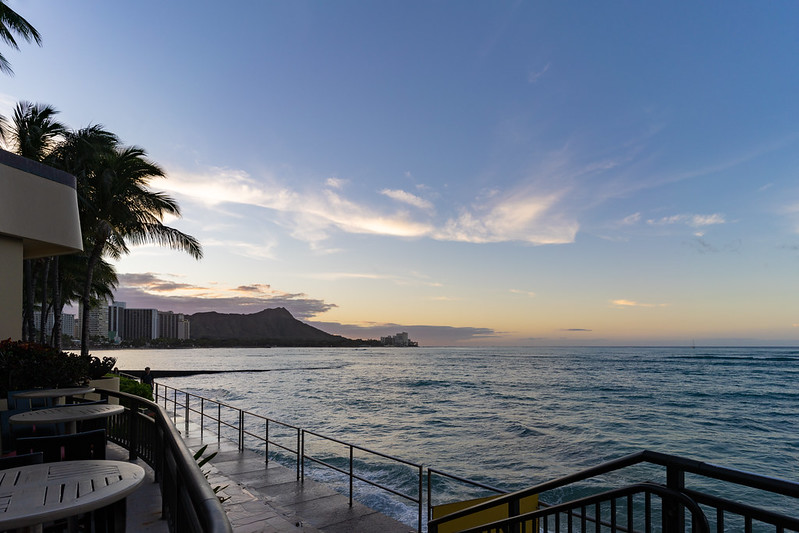A lawsuit filed by the city and county of Honolulu against nearly a dozen fossil fuel companies is moving towards trial in Hawaii after the Hawaii Supreme Court on Tuesday rejected the companies’ arguments for dismissing the case on appeal.
Honolulu first sued 10 fossil fuel companies — including BP, Chevron, Shell, ExxonMobil, and Aloha Petroleum — in March 2020, in an attempt to hold these companies accountable for alleged deception over the climate risks of their products. The fossil fuel defendants had been seeking to have the case dismissed, arguing that the lawsuit was an attempt to regulate greenhouse gas emissions, a task left to the EPA rather than states. In an 82-page opinion issued on Halloween, the state’s highest court firmly denounced the defendants’ characterization of the lawsuit, and agreed with the plaintiffs that the case is simply about whether the companies “misled the public about fossil fuels’ dangers and environmental impact.”
The court’s ruling, which upholds the trial court’s March 2022 decisions denying defendants’ motions to dismiss the case, means that Honolulu’s lawsuit will advance to the evidence-gathering phase known as discovery and, ultimately, to a jury trial. While several other climate lawsuits against oil companies — including in Massachusetts, Connecticut, and Rhode Island — are also in discovery, Honolulu’s case is furthest along procedurally among those attempting to recover monetary damages.
“This will be the first [climate liability] case to go to a jury,” Patrick Parenteau, emeritus professor of law and senior fellow for climate policy at Vermont Law and Graduate School, told DeSmog. He called the ruling a “breakthrough.”
“Not only are [plaintiffs] going to be able to prove there’s been historic, multi-decade lying, but the lying is going on right now today,” Parenteau said. “That’s going to be devastating in my view when this finally gets to a jury. And it will now get to a jury in Honolulu.”
Honolulu’s suit is demanding monetary damages to help cover the steep costs of responding and adapting to climate impacts, such as extreme flooding, coastal erosion, and sea level rise. The lawsuit charges the companies with claims of nuisance, trespass, and failure to warn, arguing that deceptive marketing and promotion of fossil fuels worsened the climate crisis and its harmful effects. As the Hawaii Supreme Court noted in its opinion: “Defendants knew about the dangers of using their fossil fuel products, failed to warn consumers about those known dangers, and engaged in a sophisticated disinformation campaign to increase fossil fuel consumption, all of which exacerbated the impacts of climate change in Honolulu.”
The case is one of more than two dozen climate liability lawsuits brought against Big Oil in the U.S. by cities, counties, and states, and one fishermen’s trade association, over the past six years. California became the latest jurisdiction to sue the industry with a lawsuit filed in September. Thus far, the cases had been bogged down in procedural wrangling over whether federal or state courts are the proper venue to hear the disputes. Lawyers for fossil fuel companies unsuccessfully argued the litigation belongs in federal court, where they saw an easier path to dismissal. In April, the U.S. Supreme Court declined to take up oil companies’ requests to review the jurisdiction question in a handful of climate cases, including Honolulu’s. Many of the cases are now advancing in state courts, and Honolulu’s suit is on track to be the first to get to trial.
“Honolulu’s case is now one of the most important climate lawsuits in the country, if not the world,” Corey Riday-White, managing attorney for the Center for Climate Integrity, an advocacy group supporting efforts to hold climate polluters accountable, said in an emailed statement. “Because of this ruling, Honolulu is poised to obtain more evidence of Big Oil’s decades-long campaign of climate deception through the discovery process, and we’re one giant step closer to that evidence getting in front of a jury tasked with deciding whether these polluters are liable for billions in climate damages.”
🚨 The Hawaii Supreme Court has REJECTED Big Oil’s move to toss Honolulu’s climate deception lawsuit. The case will now proceed to trial.
— Center for Climate Integrity (@climatecosts) October 31, 2023
It’s time for Big Oil to face the evidence of their climate lies in court and pay for the damage they’ve caused. https://t.co/JcCpdSAGJz
DeSmog reached out to several of the defendants for comment. BP declined to comment, while Chevron and ExxonMobil did not immediately respond to requests for comment.
The Hawaii Supreme Court’s ruling comes after the court heard oral arguments on the companies’ appeal in August. It was the first time the court had been in session following the horrific wildfires in Maui — the worst in the state’s history. Maui has filed a separate climate liability lawsuit against fossil fuel companies, and that case is awaiting a ruling from the trial court on the defendants’ motions to dismiss.
Subscribe to our newsletter
Stay up to date with DeSmog news and alerts







